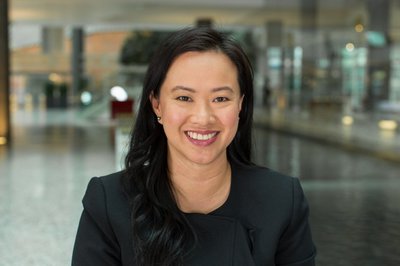22 Nov 2021
MILE Alumni Profiles: Intan Hamdan-Livramento
All the knowledge and experience I gained throughout my MILE career helped refine my thoughts on how the global economy works, and widen my perspective as an economist.
MILE 1 graduate Intan Hamdan-Livramento from Malaysia, PhD and currently an economist in the Chief Economist office at the World Intellectual Property Organization (WIPO), talks about her professional journey and the benefits she gained from pursuing the MILE programme at the World Trade Institute. This interview is part of our Alumni profiles series.
Tell us about the work you are currently doing?
I am currently working as an economist in the Chief Economist office at the World Intellectual Property Organization. My work consists of leading, conducting, and supervising empirical research on understanding the link between intellectual property rights and innovation.
What did you do before the MILE, and what was your career path after you graduated?
I joined MILE program straight out of my undergraduate degree in the United States. I was interested in pursuing a career in international trade, and took a change on the program. It worked out alright, I think.
After the program, I was one of the few of my cohorts who landed an internship at the World Trade Organization (WTO). I was placed in the WTO Director-General Mike Moore’s office for a three month-internship. The internship turned into a yearlong position where I conducted research for the DG. It was a very interesting time. I was there when September 11, 2001 hit, and saw how Member States rallied to set an ambitious agenda at the Doha Ministerial.
After my experience at the WTO, I decided to return to academia, and eventually pursued my doctoral degree in economics.
How do you think the MILE helped you in your career?
The MILE program opened my eyes to the complexity of conducting international trade across borders. While the economic reasoning for free trade was strong, various factors had to be considered when negotiating for a global trading system. The process of navigating the national, regional and international laws, and the application of different tariff lines across the jurisdictions on transporting a good from China to Brazil to the European Union to Switzerland was enough to make my head spin, let alone a budget-constrained entrepreneur.
All the knowledge and experience I gained throughout my MILE career helped refine my thoughts on how the global economy works, and widen my perspective as an economist.
Any advice for current students?
Enjoy your studies. This is the one time where you get to experience the world of international trade in a year. Your lecturers are some of the best in this field, question them and learn from them. You may be facing them in future negotiations, might as well figure out how they think and get an upper hand.
Further info
MILE Alumni Profiles series


